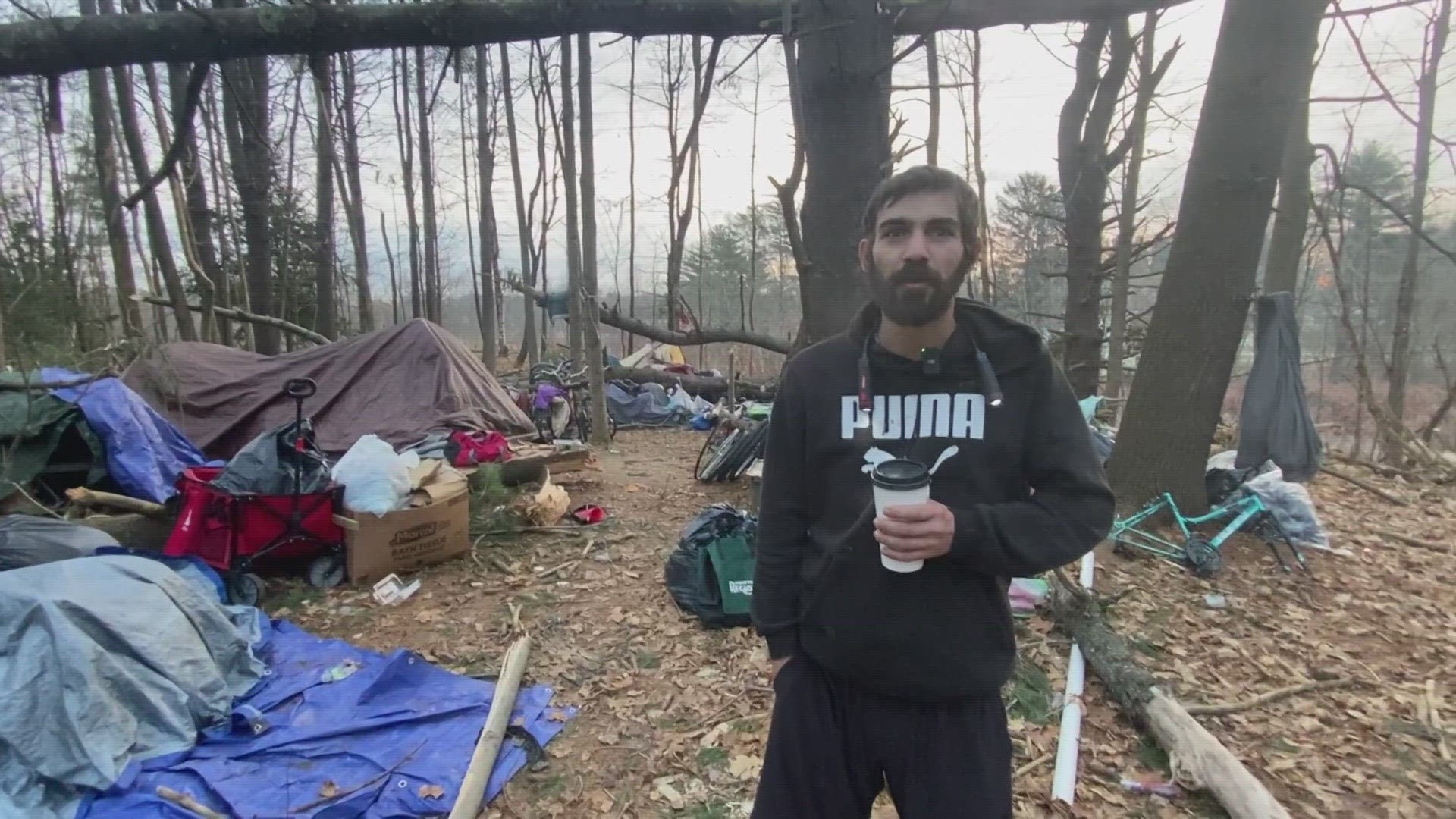LEWISTON, Maine — Dan Campbell said he's seen the number of homeless neighbors increase significantly over the last two years between Lewiston and Auburn.
The two cities which have struggled in the past to have permanent solutions to homeless shelters in recent years, are feared to be heading into a tough winter, according to people like Campbell.
"I don't think there is a misunderstanding. I think there is a lack of resources. And they don't have the money to do what needs to be done and they missed the mark," Campbell said as he drove to his first spot around 5:30 a.m. on Wednesday.
Campbell has been helping unhoused residents in the Lewiston and Auburn area for months. He spends hours talking to dozens of people every day. He brings warm clothes, cigarettes, coffee, and sometimes pays for hotel rooms for those living on the streets.
"These communities don't want homelessness, and their way of dealing with them is to kick them out and move on," Campbell said.
NEWS CENTER Maine crews rode along with Campbell through his morning rounds. The first spot was right down the street from the Big Apple off Main Street in Lewiston. There, we met Pat Crocker, who has been homeless for three years.
"It ain't fun," Crocker said about the cold. "You got no place to stay warm ... and you really got no one to depend on."
Crocker said he grew up in Rangeley and went to jail. When he got out, he didn't have much, so went to Lewiston. He said if he was offered a bed at a shelter, he would take it.
Campbell handed Crocker gloves and a pack of cigarettes and quickly made his way further down the road to the Salvation Army, where about three people were hanging around on the ADA ramp.
"How you doing, big guy?" Campbell yelled as he walked up to the group.
Campbell did the same thing, again and again, at different sites throughout Lewiston and Auburn.
But when we drove up Sabattus Street when it forks off from Main Street, we encountered a woman named Heather. Campbell approached her, and she was confused and cold.
She said her things were stolen, including her warm blankets and cart she had. She spent the night only with a sheet. It was around 20 degrees in Lewiston overnight.
"Where was the one I gave you, sweetheart?" Campbell asked her. "Give me five minutes."
We head back to the car where Campbell gets a sleeping bag, blanket, and coffee. He worked with haste and asked Heather if she needed to go to the hospital. She said no and that she was warm now.
"This is maybe the eighth time this has happened where someone takes her stuff, and she's left like that, and yet we have no place to put her. Shame on us," Campbell said.
The struggle to create permanent solutions to homeless shelters in the Lewiston and Auburn area has been in the news cycle throughout 2023 since warming shelters were closed.
But with a new city council in both cities, leaders are looking for swifter action.
Jeff Harmon, the new mayor of Auburn, said there is a significant lack of resources.
"The homeless population has increased in the Auburn-Lewiston area over the past several years and will continue to increase unless there is a coordinated intervention that includes city government, state government, nonprofit organizations, and other service providers," Harmon said in an email.
Near the end of Campbell's rounds, we visited an encampment at the Riverside Cemetery. Campbell said he was told the encampment, which consists of around a dozen people, would be cleared by the City of Lewiston.
According to a statement from the City of Lewiston, a spokesperson said the encampment will be removed because the property belongs to the cemetery.
Dan Campbell ended his day by visiting a couple who recently escaped homelessness: Marquee Wilson and Nick Gibbons, who were homeless for a year and a half.
"It gives me hope," Wilson said. "It calms me now that we don't have to worry about where we are going to sleep every night."
The couple said they are looking forward to getting a job and getting back on their feet.
Campbell said seeing the hope in this couple helps him continue.
"Pain without hope is hopelessness," Campbell said. "And that in society we need to give them help, we need to give them shelter."

